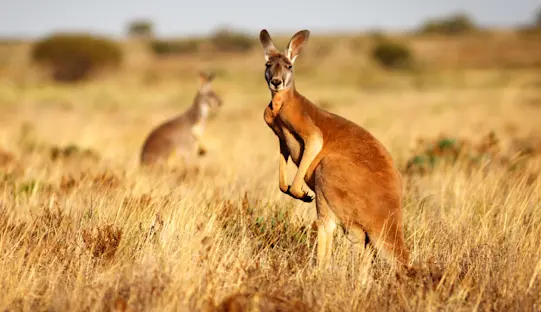
Perhaps red-winged blackbirds are trying to send us a message about the noise pollution we create.
Instead of waking to falling snow as many of us did on New Year’s Day 2011, people in Beebe, Arkansas, rose to find thousands of birds—grackles, starlings and red-winged blackbirds—falling from the sky, dead. An aerial photo revealed that the carcasses fell within a one-mile stretch of Beebe.
At first, theories about the cause ran from the natural (lightning strikes, high-altitude hail or shifts in the Earth’s magnetic core), to the imaginative (a chemical conspiracy, UFOs or a sign of the end of time as foretold in the Bible). In the end, however, scientists attributed the bird deaths to celebratory fireworks on New Year’s Eve. They postulated that the loud noises, cracks and booms may have sent the birds into such a frenzy that they crashed into homes, cars, trees and each other before plummeting to their deaths.
While this explanation is more palatable than thinking that the government is testing secret weapons or that beings from other planets are finally (after all our sci-fi movies!) making their move on our planet, it raises a troubling question: if birds nest in areas near human activity—and we keep contributing to an increasingly noisy world—what will the consequences be for wildlife?

Nearly one-third of the world’s amphibian species are on the verge of extinction. ©John T. Andrews
It’s not only the birds
We already have plenty of evidence that elevated noise levels have harmful effects on terrestrial as well as marine animals. In Zimbabwe, helicopters that ferry tourists above Victoria Falls and elephant herding grounds create so much noise that it can be compared to the sound of a stampede. Environmentalists are worried that such noise may scare the region’s large numbers of elephants enough to make them flee to other areas. Of course, you can’t remove one species from its home ground without affecting the entire ecosystem, which means that the repercussions from a loss of elephants will reach to thousands of other wild animals and birds, making them suffer as well.
In the United States, noise from nearby traffic has been shown to alter the behavior of gray tree frogs. Loud sounds slow the abilities of the females to listen for and locate male frogs that are calling to them during the mating season. In Europe, tree frogs simply don’t call as much as they used to due to increasing noise pollution. Both gray and European tree frogs are struggling to adapt their calls to the growing demands of increased environmental noise, but unfortunately, they may be waging a losing battle. With less reproduction, their populations are declining.
In the oceans, noise from shipping activities, oil drilling, undersea machinery such as sounding equipment that fishermen and scientists use, and navy sonar is making an impact on whales. Whales use their vocalizations for communication, navigation, detection of predators and prey, and to attract mates. Disruption of these biologically important functions could determine their reproductive success and longevity. Sound, particularly low-frequency sound, travels very efficiently underwater; some human activities may be felt across quite large areas of oceans.

Noises from human activities are making an impact on whale populations worldwide. ©Candice Gaukel Andrews
Can you hear me now?
I’m not sure what killed the birds over Beebe. After all, many communities use fireworks for celebrations at varying times of the year, and birds typically do not rain from the sky. Maybe the event was a natural phenomenon and had nothing to do with human activities.
On the other hand, perhaps we do need to be more careful where we make our loud noises. Perhaps some wild areas should remain roadless, some patches of ocean left drill-less and some pond shores made into no-drive zones during mating season.
Do you think we need to institute noise regulations around sensitive natural areas, or would such laws be too intrusive, unrealistic and impossible to enforce?

In many cultures throughout the world, birds have portended the future. Owls often represent wisdom, helpfulness and the power of prophecy. It now seems that other birds have much to tell us about the paths we’re choosing, as well.
In our lore and in practice—and in that of many other cultures—birds have portended the future. Owls often represent wisdom, helpfulness and the power of prophecy. Ravens are messengers, creators and guides to the Otherworld. We have put canaries into our employ in mines as early warning systems for toxic gases. It looks now as though the grackles, starlings and red-winged blackbirds are trying to tell us something, too.
If we’re quiet, we may be able to hear what they have to say.
Here’s to finding your true places and natural habitats,
Candy






























